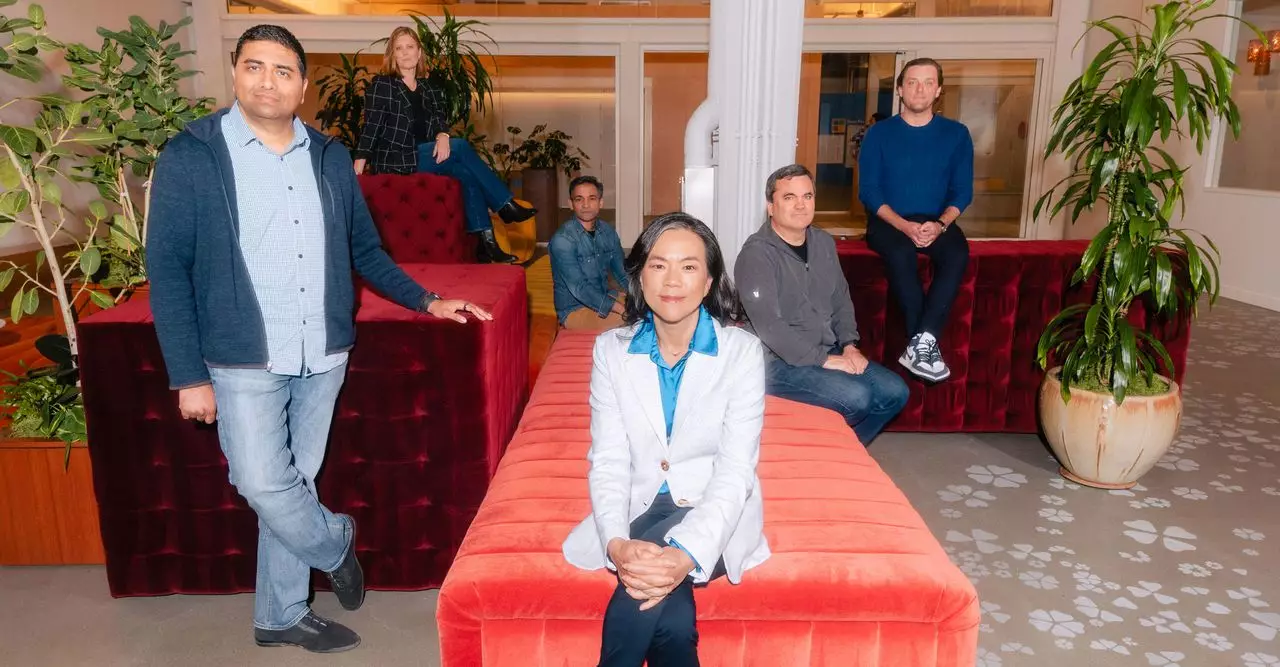In the fiercely competitive landscape of generative AI, the primary driver for companies like Google is profit. Despite the prolific advancements in AI technologies, customer willingness to pay for these features remains low. Google appears poised to utilize its latest platform, the Gemini app, as a vehicle for ad revenue—essentially adopting the “freemium” model that has been a staple of Silicon Valley. This approach hinges on a simple premise: users forfeit their data and attention in exchange for free access to cutting-edge tools. While this model has flourished, it raises significant ethical questions regarding user privacy and the value of their transactional data. The question looms—can Google adapt this model efficiently enough to compete with burgeoning rivals like OpenAI, which boasts around 600 million app installs for its ChatGPT?
The Competitive Landscape: More than Just Google
Google isn’t in this race alone. Numerous other players, including Claude, Copilot, Grok, and others, offer varied approaches to generative AI, intensifying the competitive atmosphere. Each competitor, many backed by powerful corporations, challenges Google’s historical dominance in search and advertising. The significant investment needed for developing generative AI remains a double-edged sword for the industry. With AI systems requiring billions in funding and an ever-increasing energy output—contributing to sustainability concerns—companies are not merely racing against each other; they are racing against time and environmental responsibilities. As they push for efficiency and strive to lower error rates, none have truly cracked the code for monetization without exhausting resources or impacting the planet negatively.
The Threat of Antitrust: An Internal Challenge
This escalating competition arrives with its own set of internal threats. According to JP Morgan analyst Doug Anmuth, Google faces an impending loss of up to 25% of its search ad revenue due to antitrust actions in the near future. This critical challenge is likely creating immense pressure within Google’s ranks, prompting employees to intensify their work efforts. Reports suggest that employees have been sacrificing their holidays and personal time to keep up. The culture of relentless productivity, exemplified by co-founder Sergey Brin’s endorsement of a “60 hours a week sweet spot,” is a clear indication of the anxiety permeating the Google ecosystem. Current and former employees express unease over the company’s volatile environment, where the specter of layoffs and burnout looms large.
The Bright Horizon of Generative AI
However, amidst the challenges, the potential of generative AI remains tantalizingly close. Governments, including those traditionally wary of big tech, are beginning to see the promise of AI technology. At Google DeepMind, Demis Hassabis’s ambition for Artificial General Intelligence (AGI) reveals a forward-thinking vision—a cognition system that can perform tasks akin to human intelligence. Innovative projects, such as the Astra prototype, illustrate a future where physical environments could be fully accessible through AI interaction. For AGI to become a reality, the technology will need to evolve significantly in reasoning and cognitive planning capabilities.
Agentic AI: Stepping into the Future
In pursuit of further advancement, OpenAI recently showcased its experimental Operator service, a form of “agentic AI” that can execute tasks like booking trips and filling out forms, albeit at a slower pace than a human. This innovation underscores an essential pivot in the AI narrative—moving beyond mere conversational abilities and towards practical execution in daily tasks. Google’s response to this development is crucial; the looming arrival of its enhanced Gemini models promises features that could shift the paradigm of human-AI interaction dramatically, transforming AI from a passive assistant to an active participant in users’ lives.
Public Perception and Trust: A Fragile Balance
Yet, as Google navigates this thrilling yet perilous landscape, the importance of user trust cannot be overstated. Even as tools like Gemini are introduced to help users in various aspects of daily life, like meal planning or grocery shopping, the recent blunders—like the erroneous cheese consumption statistic—highlight the risks of rushing innovations to market without thorough validation. Google’s approach emphasizes caution, aiming to mitigate the fallout from such missteps and preserve the fragile trust users place in AI capabilities. Ultimately, as tech giants vie for supremacy in the generative landscape, sustaining this trust while innovating rapidly will be pivotal for long-term success. The AI race is truly on, and the stakes have never been higher.


Leave a Reply